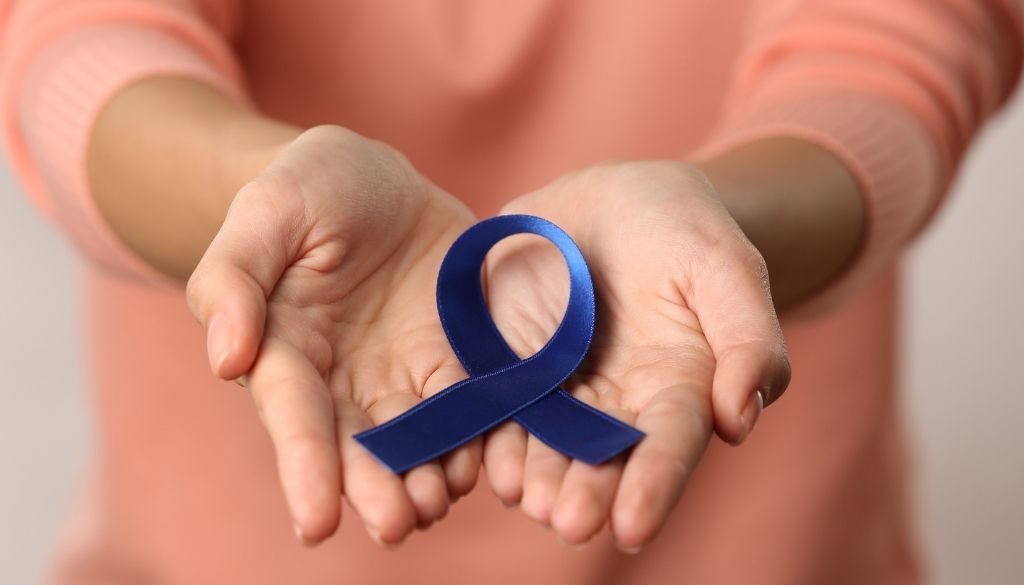Signs of Colon Cancer You Can’t Afford to Ignore
No one likes to talk about colonoscopies.
It’s embarrassing. Not the kind of thing you talk about in front of your coworkers.
However, colonoscopies remain one of the best ways to identify the signs of colon cancer, and at our Endoscopy Center, we have the state-of-the-art screening tools and a stellar staff to help you.
Screenings are particularly important because, at its early stages, there may be no colon cancer symptoms at all.
Signs of Colon Cancer
As in the case with all cancers, early detection is vital—however, the problem is that many people in the early stages of colon cancer don’t show any signs. This is why it’s extremely important to schedule a screening, particularly if you are showing symptoms.
Even when symptoms do appear, they can vary depending upon how big the cancer is or where it is located in the intestine.
That being said, there are some indicators that you should be on the lookout for—and if you have them, you should schedule an appointment with one of our doctors.
Symptoms of Colon Cancer
These can include
- Any change in your bowels.
- This means diarrhea or constipation. But don’t panic just yet—diarrhea and constipation can be caused by several different factors, and this symptom within itself may not be cause for worry. However, if it is consistent and is outside of what is normal for you, it’s time to schedule an appointment.
- Any consistent change in your stool.
- You want to be aware of what is normal for you so you can keep track of any changes.
- Blood in your stool
- This is one of the number one signs of colon cancer. Be aware also if you have dark stools.
- Rectal bleeding
- Any time you have consistent rectal bleeding, you should take it seriously.
- Continual abdominal problems—such as cramps, gas or pain
- While these can be caused by different conditions, if you’re having them consistently, it’s time to schedule an appointment.
- The feeling that your bowels never completely empty
- Fatigue
- Again, this is a symptom of many diseases, and only a doctor can determine the exact cause.
- Weakness
- Unexplained weight loss
When Should I Start Having a Colon Cancer Screening?
You should talk with your doctor, because when you should have a screening depends upon your age and whether or not you have a family history of colon cancer. In general though, we recommend that colon cancer screenings begin around age 50.
If you have a family history of colon cancer or if you’ve had polyps, we may recommend it earlier.
What Causes Colon Cancer?
Honestly? There’s still a lot of research going on to determine the cause, but it’s not clear what creates most colon cancers.
In general, cancer affects a healthy cell’s DNA. DNA could be considered the “blueprint” of a cell. When that blueprint is damaged, tumors form.
Am I at Risk of Colon Cancer?
You’ll have to talk to your doctor to more accurately assess your risks. However, we’ve got a few points that you should be aware of. You’re at greater risk of colon cancer if:
- You have a low-fiber, high-fat diet.
- You’re over 50—the majority of colon cancers occur in those over 50.
- You’re African-American, you’re at a greater risk of colon cancer.
- You have a history of polyps.
- You’ve already had colorectal cancer.
- You have ulcerative colitis or Crohn’s disease.
- You have a family history of colon cancer.
- You have a sedentary lifestyle.
- You smoke.
- You have diabetes.
- You’re obese.
- You have heavy alcohol use.
The good news is some simple lifestyle changes can dramatically reduce your risk for colon cancer. For example, you should eat a variety of fruits, vegetables and whole grains. Stop smoking if you smoke, and if you decide to drink alcohol, only do so in moderation.
Even getting 30 minutes of exercise on most days can make a difference. This will help you maintain a healthy weight, which will also reduce your risk.
What Happens During a Colon Cancer Screening?
Ah, the “dreaded” colonoscopy. We know you’ve heard unpleasant stories about this, and we want to assure you that the procedure—while not a day at the beach—is nothing to be afraid of. With our expert physicians, technicians and nurses, we’ll give you stellar care throughout the entire process.
Another question we get asked a lot is “do colonoscopies hurt?” Because patients are given light sedation during the procedure, most aren’t even aware it has been done!
During a colonoscopy, a thin, lighted tube with a small camera is inserted into the rectum and the doctor uses it to examine the large intestine. During this time he or she may notice and remove any polyps that are discovered.
See Why Our Endoscopy Center is the Leader in the South Carolina Region
Sophisticated equipment? Check.
Board-certified physicians? Check.
A world-class staff? Check.
When you learn more about the expertise and experience found at our endoscopy center, you’ll see that there’s really no reason to go anywhere else.
Contact us today to schedule your colon cancer screening.




